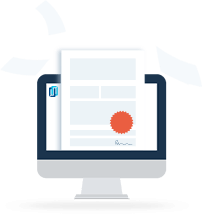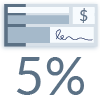
The Virginia Prompt Pay Act was enacted to ensure timely payments for contractors and suppliers working on public works projects. This is achieved by imposing interest rates on any late payments. These are important regulations to understand as they not only ensure that you get paid on time, but that you also pay your subs and suppliers on time as well. Let’s take a look at the specific rules and deadlines.
Virginia Prompt Payment statutes
Virginia’s Prompt Pay Act can be found in the Virginia Public Procurement Act. These statutes apply to all public works projects within the state, including construction projects that are commissioned by the state, county, city, town, public schools, or any other Virginia public entity.
The Virginia Prompt Pay Act establishes specific timelines in which payments must be released on public construction projects. Failure to comply with these rules can result in interest accruing on the unpaid funds. This article will detail the deadlines to make payment, retainage, and the interest penalties that will apply.
The timeline for payment on a public project depends on the who is making the payment and whether it is a state-funded project or a locally funded project. Each party is entitled to payment once the goods or services are furnished according to the terms of the contract and the receipt of a proper invoice.

Dealing with Slow Payment?
Send a Payment Demand. We’re experts at prompting payment. It’s fast, easy, and done right.
Payments from the public entity to the prime
Timeline for payment
All payments from the public agency to the prime contractor (general contractor) are governed by the contract payment terms themselves. However, if the contract is silent, the statute provides a deadline.
- State government projects- the payment date will be the later of 30 days after receipt of a proper bill or invoice or 30 days after receipt of the goods or services on the project.
- Local government projects, the payment due date will be the later of 45 days after receipt of the invoice or 45 days after the delivery of the goods or services if the contract does not specify a different time for payment.
If the invoice or bill is defective in any way, then the state agency must notify the person issuing the invoice within 15 days. This timeline is extended to 20 days if a defective invoice is sent on a local project.
Unlike other states’ prompt payment laws, there is no specific list of reasons that justify the withholding of payment. The laws do state that interest won’t accrue if either the invoice is defective, or there is a disagreement regarding the quantity, quality, or time of delivery of the labor or materials to the project. This will be determined by the contract terms between the parties.
Interest rate
On state projects, the interest penalty will not kick in until 7 days after the payment becomes due. The interest rate can be provided by the construction contract. However, if not included in the contract terms, then the rate will be determined by the national prime rate of interest published in the Wall Street Journal.
As of July 2022, the rate is set at 5.5% per year or 0.4583% per month. If the prime rate is split, then the lower of the two rates will apply.
Payments from the prime to subs

Timeline for payment
Once a prime contractor receives payment, either from the state or local contracting agency, the clock starts ticking. The funds owed to the contractor’s subcontractors and supplier must be passed on within 7 days of receipt. In turn, subs must pay their subs and suppliers within the same 7-day period from receipt of payment.
Interest rate
All improperly withheld payments to subcontractors and other lower-tier participants will accrue at the rate stated in their contract. If the contract is silent as to the interest rate, then interest will accrue at a rate of 1% a month until the debt is paid. Unlike payments from public agencies to the prime contractor, any payments withheld past this date will immediately start accruing interest.
Withholding retainage on Virginia public construction projects

On Virginia public projects, the amount of retainage that can be withheld on progress payments cannot exceed 5% of each payment. This is to ensure the faithful performance of the contract. This restriction applies to all contracts and subcontracts on such projects.
If the contract exceeds $200,000, the contractor has the option of executing an escrow agreement. This results in the withheld retainage being deposited in an interest-bearing account, which is all payable to the contractor upon completion.
Unfortunately, there is no provision stating when the public entity must release retainage.
Recovering under the Virginia Prompt Pay Act
The Virginia Prompt Pay Act is meant to ensure that contractors and subs on public projects get paid in a timely fashion. The issue is, that these interest rates aren’t allowed to be included in a bond claim. Which means that in order to recover such payments, contractors may have to file a lawsuit to enforce your rights under the prompt pay statutes is required.
Another option, before filing a lawsuit, could be to send a final warning letter. This is referred to as a Notice of Intent to Make a Prompt Payment Claim. By sending one of these, you are informing the party that you are still awaiting payment, you understand your rights under the prompt payment laws, and are willing to enforce them if necessary. When filling out this form, you should cite the statute under which the claim is made. These are usually pretty effective at inducing payments.
Additional resources


